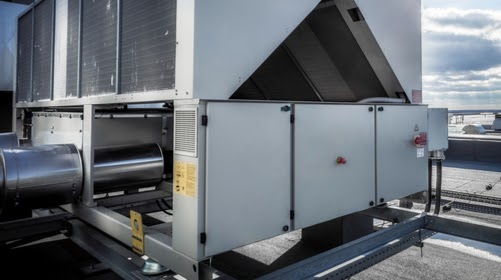
You might think the blustery winds of fall and freezing temperatures of winter would prove to be the most severe way that weather can impact air filtration systems, but don’t discount summer too quickly. The warm months are no time to ignore HVAC maintenance.
Late spring and early summer are notorious for the abundance of natural pollutants like pollen in the air. Then there’s the reaction high temperatures can cause when they start to interact with air pollutants. Put simply, the summer weather can be incredibly hard on your air filtration systems.
You don’t want to find yourself playing catch-up after pollutants have infiltrated and fouled your system, potentially impacting HVAC performance or even causing failure and unscheduled downtime. When you understand summer weather's impact on air filtration, you have a better ability to spot problems and prevent harm that could lead to costly repairs or downtime.
The Impact of Heat and Humidity
If you paid attention in science class, you know that heat is often a catalyst for chemical reactions. The summer sun can definitely affect airborne chemicals due to the higher outside temperatures. Essentially, high temperatures react with chemicals in the air, mainly the ground-level ozone created by sources such as vehicle emissions and power plants. When heat is introduced, this combination of factors can create a toxic pollutant commonly known as smog.
The prevalence of smog depends on several factors, such as the amount of chemical pollution in the air. This is why urban areas with tons of traffic are typically more prone to smog. However, geography and weather can also play a role. Valleys with little air circulation may trap pollution, and naturally, higher temperatures could exacerbate the problem.
What does this mean for your HVAC system and air filters? A lot of pollutants are entering your heating, cooling, and ventilation systems, especially when exterior heat pushes you to run air conditioning around the clock and keep workspaces cool. This not only clogs filters faster, but the addition of high humidity creates the perfect breeding ground for mold and bacteria, which can also impact filter performance and longevity.
Related: Do You Know How to Clean Air Filters?
The Spread of Pollution
You might think the wind will reduce summer weather’s impact on air filtration, but the truth is, it could make matters worse (at least initially). A strong, steady breeze could certainly help clear smog and pollutants from an area. However, it will first stir up pollen, dust, ozone, and other contaminants, dispersing them into the air, which is why pollen counts are often higher on windy days.
Related: Allergy Season and Commercial Air Filters
Keep an Eye on Air Quality Conditions
Now that you know how summer weather can impact your HVAC system, you’re probably wondering what to do about it. The first thing to do is pay attention to the weather and air quality conditions.
If you have several days or weeks of scorching weather, especially when paired with windy conditions, expect it to impact your filters. You can also stay up-to-date with air quality by simply visiting the AirNow (U.S. Air Quality Index) website and entering your zip code to check levels of pollutants and ozone in your area. There’s even an AirNow mobile app for Apple and Android devices. If high heat and poor air quality persist in your area, your filters will suffer as a result.
Check Air Filtration More Frequently
The final step in combating warm weather’s impact on air filtration is to check filters more often. A good rule of thumb is to pull filters monthly to look for fouling that impacts performance.
How often you replace filters will depend on your area, the weather, and of course, how robust your filter is. When you understand the impact of summer weather, you have a better chance of maintaining a functional HVAC system and avoiding issues that could impact the work environment or result in downtime. For help with inspecting and maintaining your HVAC systems and other equipment, get in touch with Tate’s experts, as well as the experts at our Site Support Services division. Our team is ready to help, 24/7.
